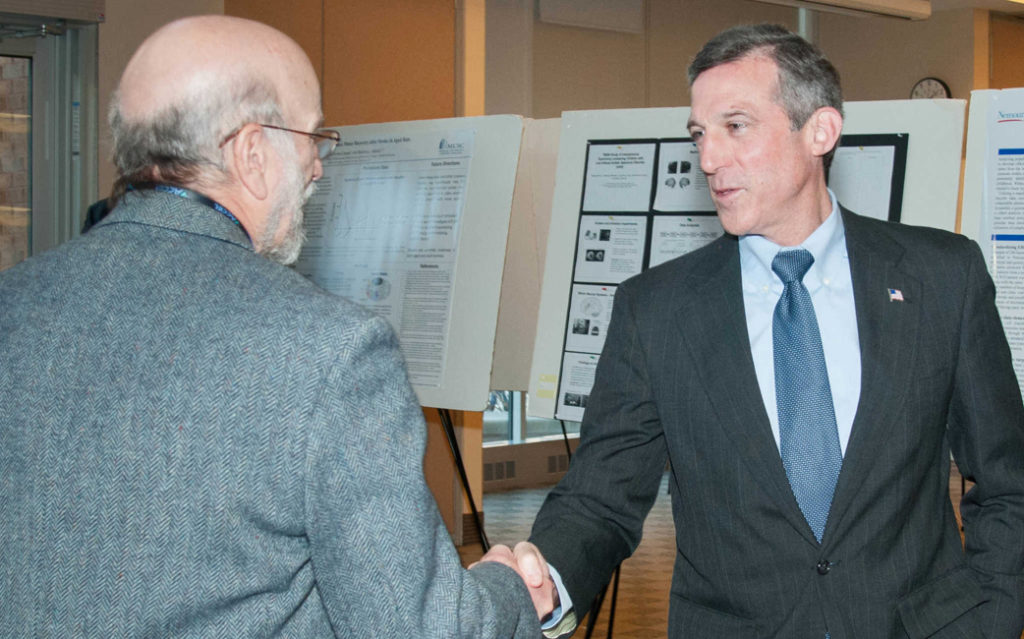Conference Celebrates Fourth Year of Major Clinical and Translational Research Program

Conference Celebrates Fourth Year of Major Clinical and Translational Research Program
The successes of innovative research collaborations between Christiana Care Health Systems and its many partners were celebrated during the Fourth Annual Delaware Clinical and Translational Research (DE-CTR ACCEL) Annual Meeting. The meeting, held March 6 at Christiana Hospital, brought together almost 200 researchers from Christiana Care and its DE-CTR ACCEL partner institutions – the University of Delaware, Nemours/A.I. duPont Hospital for Children and the Medical University of South Carolina – as well as collaborators from government, academia, health care and other fields.
“The 2017 CTR annual conference showcased the great work and collaboration across the institutions,” said William Weintraub, M.D., Christiana Care’s John H. Ammon Chair of Cardiology and the health system’s representative on the DE-CTR ACCEL executive committee.
During the conference, Daniel J. Rader, M.D., the keynote speaker, delivered an inspirational talk on the increasing importance of genetics in clinical medicine.
Dr. Rader is the Seymour Gray Professor of Molecular Medicine at the University of Pennsylvania’s Perelman School of Medicine, Chair of the Department of Genetics and Chief of the Division of Translational Medicine and Human Genetics at Children’s Hospital of Philadelphia. His research focuses on the genetics and functional genomics of lipoprotein metabolism and translational implications for novel therapeutic approaches to unmet medical needs. His speech was about precision medicine, which is an area DE-CTR ACCEL hopes to target in future research.
Value Institute members presented updates on numerous research projects funded through the DE-CTR program, including use of linked pharmacy claims data to understand patients’ non-adherence to medication prescriptions, development of a statewide Chronic Kidney Disease registry and related patient-centered outcomes, research efforts and development of a sepsis visual risk profiling model.
Also featured were collaborations between DE-CTR and CTR programs in other states – including Montana, Oklahoma and Rhode Island – funded by the U.S. National Institute of Health’s Institutional Development Awards to build research infrastructure.